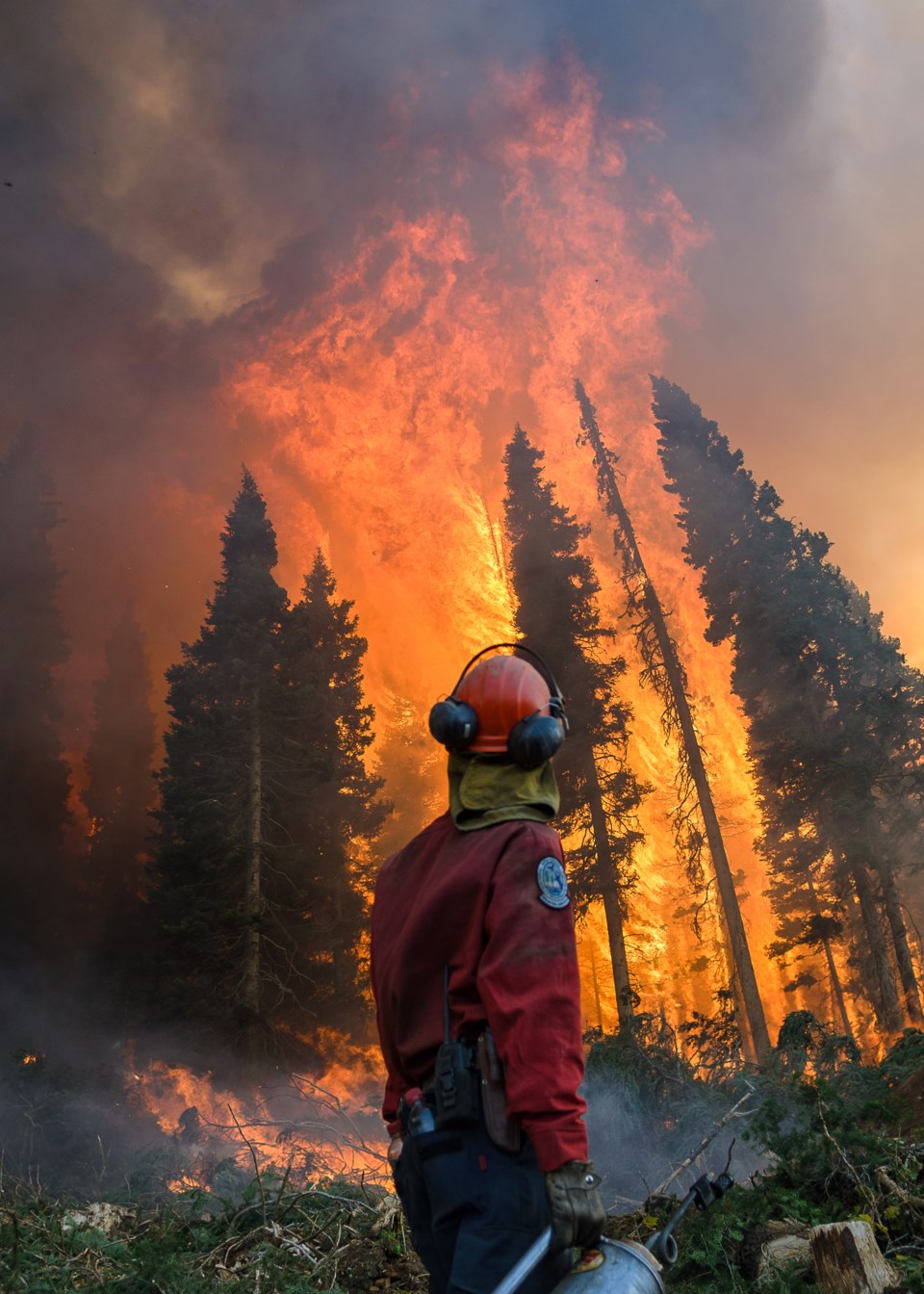I’ll admit to experiencing a brief moment of panic last weekend.
As epic, booming thunderclaps rolled over the valley against a smoky, hazy backdrop, it felt almost inevitable.
And then, sure enough, dotting the map like little, alarmist warnings, a series of red circles began popping up all around Whistler, denoting new lightning-caused fire starts.
Six, at one point: five to the south, and the biggest (though still tiny at just 0.1 hectare) to the north, right by Highway 99.
As I looked around my little apartment, I came to the startling realization I am not quite as prepared as I thought I was.
So there I was, on a Friday night, considering what I absolutely could not leave behind if worse came to worst, and the Resort Municipality of Whistler’s (RMOW) Whistler Alert sent notice of evacuation alert or order to my phone (speaking of which, if you haven’t signed up for Whistler Alert, the RMOW says it is the most important thing you can do in terms of emergency preparedness).
We hear about evacuation alerts and orders in other communities all the time, but Whistler has mercifully been spared that anxiety-inducing experience itself (knocking on all the wood in Whistler here, of course). So we can’t really understand how stressful an evacuation is without having lived it.
But watching the fire map on a Friday night, considering for the first time what I would actually like to save, if given enough time, and how I might go about fitting it all in my car… I realized it’s slightly more complicated than a go-bag by the door.
Even the thought of leaving behind my home of the last 10 years, unsure if there would be anything to come back to, is gut-wrenching. And we’re still talking pure hypotheticals here.
Luckily, it never came close to that, thanks to the efforts of the BC Wildfire Service (BCWS).
Fire crews actioned all six of the spot fires almost immediately, and anyone watching the fire map would have seen them turn from red to yellow to green, then disappear completely in real time as crews wiped them out.
Thank you, firefighters.
With that taken care of, focus returned to two larger fires north of Whistler, at Rutherford Creek (56 hectares as of Wednesday morning) and Birkenhead Lake (435 hectares).
It’s hard not to lionize these brave men and women when you see the dramatics playing out so plainly in front of you, as was the case in Whistler this weekend, when a steady procession of water bombers could be seen skimming Green Lake en route to the big blazes further north.
I’ve found myself mildly annoyed with the frequency of sightseeing flyover planes this summer—but the repeated, heavy hum of water bombers flying low over my house is oddly reassuring.
Godspeed, ladies and gents.
I have extra reverence for the people doing this work because I know it is something I could never do.
My aversion to heat and high temperatures was made deathly clear to me 20 years ago, on a scorching summer day pipelining through an Alberta field, not a drop of drinking water in sight.
That was one of a small handful of heat-stroke excursions that proved to me I was destined for a desk job.
A day spent training with the Whistler Fire Rescue Service in 2019 was enough to reaffirm my decision.
After gearing up in Whistler Village, we rode in a fire truck to the training yard on Highway 99. Over the next few hours, we ripped apart a car with WFRS auto extrication tools, felt the heat of a flashover in a makeshift sea-can training structure, put out a car fire, and climbed to the very top of the WFRS’ highest fire truck ladder.
My main takeaway? Being a firefighter is sweaty, dangerous work, and I’m more than happy to let someone else do it.
Tragically, sometimes those tasked with keeping us safe don’t come home, as was the case Aug. 3 in Jasper, when 24-year-old firefighter Morgan Kitchen was killed by a falling tree.
According to the B.C. government, the BCWS employs about 1,300 firefighters each year, deployed on four different crew types.
About 10 B.C. firefighters die in the line of duty every year, according to the BC Professional Firefighters Association, which represents a further 4,600 professional fire fighters, dispatchers, prevention officers and support staff.
As lightning has its way with our bone-dry forests, Whistler will have more close calls with fire. We can all do our part to make firefighters’ jobs easier by not starting any fires, and reporting all signs of smoke by calling 1-800-663-5555 or texting *5555. In Whistler, call 911.




